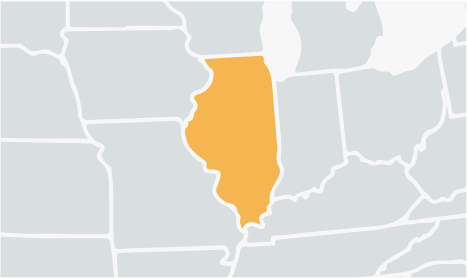Illinois has attempted to improve its anti-SLAPP protections with the passage of Senate Bill 1181. This legislation, signed into law on August 21, 2025 by Governor J.B. Pritzker, modifies the state’s anti-SLAPP statute, the Illinois Citizen Participation Act (ICPA).
A 2012 state Supreme Court decision had effectively gutted the speech protected by the original Act. Public Act 104-0431 attempts to repair that damage. The new law, which passed the Illinois House 75-38 and the Senate 47-10, also aims to provide more explicit protections for the press.
In 2012, the Illinois Supreme Court decided Sandholm v. Kuecker.[1] Addressing the ICPA, which was adopted in 2007, the ruling narrowed what many originally thought was a broadly worded law intended to protect speakers. Instead, the Court applied its protections only to situations in which a SLAPP was “solely based on, relating to, or in response to” the defendant’s speech when petitioning the government for a redress of grievances. The effect of that ruling that effectively added the word “solely” to the law was to tip the scales in favor of plaintiffs in such lawsuits. Instead of the law’s command to apply a balancing test, the ruling shifted the burden of proof almost entirely to defendants to prove that the lawsuit was both frivolous and filed with retaliatory intent.
For years, Illinois appellate courts have interpreted these confusing standards in increasingly messy ways,[2] with no end in sight. Last year, the Illinois Supreme Court affirmed the tests yet again.[3] Although the Court recognized the mess that had developed, it stated that its hands were tied.[4]
The legislature had at that point not acted to amend the ICPA.[5] Now the legislature has. The amendments in SB 1181 now expressly provide that the Sandholm test is no longer the law by doing away with the ambiguous tests for “retaliatory” litigation: the ICPA now “applies regardless of the motives of the person who brought the claim.”
Additionally, the Illinois Supreme Court held last year that the ICPA did not necessarily apply to “media defendants regarding news publications.”[6] The Court ruled, “We are simply holding that the Act specifically protects government participation and does not encompass all media reports on matters of public concern.”
The legislature has also responded to this point. The amendments in SB 1181 expressly contemplate protection for media defendants and protect the “rights of petition, speech, association, or to otherwise participate in government, including freedom of the press.”
Perhaps most worrisome is that the law still provides an exception when the speech is “not genuinely aimed at procuring favorable government action, result, or outcome.” Consider product or service reviews. They would seem completely unprotected. Keeping the burden of proof on speakers to show that their speech is “genuinely aimed at procuring favorable government action” also limits the scope of the law’s coverage and adds to the cost of defending against such lawsuits.
Finally, in a last bit of good news, SB 1181 also adds new language to clarify that filing an anti-SLAPP motion will stay “all other proceedings” in the litigation.
The statute unfortunately still strays far from the Uniform Law Commission’s model law known as the Uniform Public Expression Act (UPEPA). It’s unclear how the state’s supreme court will eventually interpret the new law. It will likely take many years of litigation to determine whether the new law provides good safeguards for constitutionally protected speech.
We gave Illinois’ anti-SLAPP law a D+ grade in our most recent Anti-SLAPP Report Card, reflecting significant weaknesses in the amount of speech protected by the law. The new law appears to be an improvement, but Illinois’ score in our forthcoming rating is unlikely to rise into the top tier of states. The new provisions take effect for actions commenced on or after January 1, 2026.
1 Sandholm v. Kuecker, 962 N.E.2d 418 (2012).
2 See Glorioso v. Sun-Times Media Holdings, LLC, 220 N.E.3d 402 (Ill. 2024) (Hyman, J., dissenting) (collecting cases); see also Hytel Grp., Inc. v. Butler, 938 N.E.2d 542, 555–56 (2010) (establishing the first test for “meritless” and “retaliatory” litigation under the ICPA in Illinois).
3 Glorioso v. Sun-Times Media Holdings, LLC, 2024 IL 130137.
4 Id. at ¶ 53 (“Under principles of stare decisis, we are duty bound to follow the analysis set forth in Sandholm, absent special justification, good cause, or compelling reasons for departing from or overruling its holding.”).
6 Id. at ¶ 78 (finding that the ICPA only applies to media defendants where reporters are directly involved, or “participating” in a government investigation, not where reporters report on third party events).














